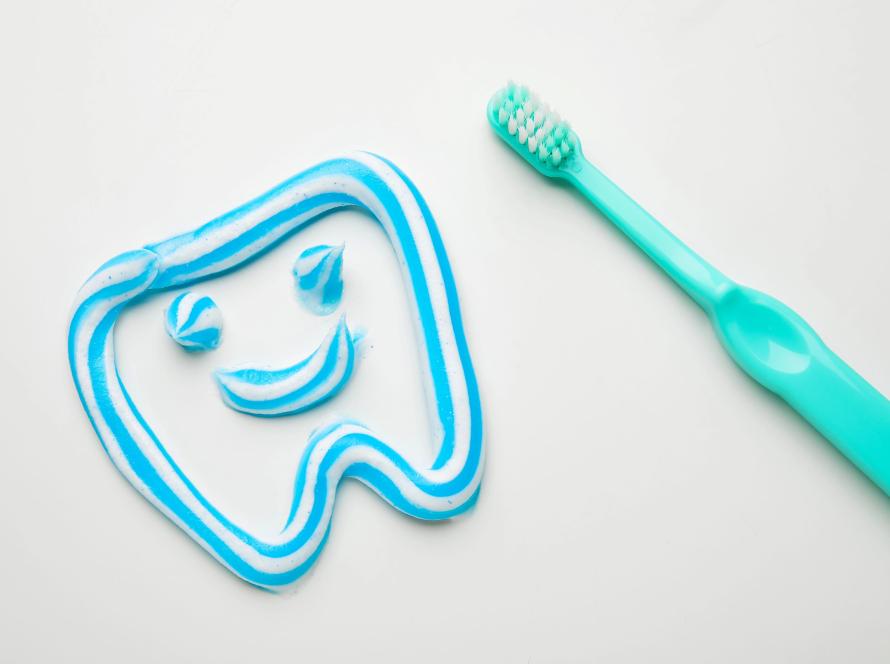Parents and pediatric dentists alike understand that children’s oral health is a priority. The development of strong, healthy teeth in children affects their ability to chew food and speak properly and plays a significant role in their overall well-being. This guide explores various aspects of children’s dental health, from tooth development to preventive care. (Source: Oral-B, Children’s Teeth: Development, Prevention & Problems, https://www.oralb.ca/en-ca/oral-health/life-stages/kids/childrens-teeth-development-prevention-problems).
Understanding Children’s Teeth Development
Children’s teeth development is a fascinating process that begins before birth. By the time a child is born, they already have 20 primary teeth formed beneath the gums. These primary teeth typically begin to emerge around six months of age and continue until about three years old.
Critical Stages of Teeth Development
- Birth to Six Months: The primary teeth are already present under the gums.
- Six to Twelve Months: The first teeth (usually the lower front teeth) begin to emerge.
- One to Three Years: Most children have a complete set of 20 primary teeth by age three.
Toronto Kids Dental shares, “Understanding each stage of their child’s tooth development is crucial for parents as it allows for early detection of problems, promotes proper oral hygiene, supports healthy nutritional choices, and provides psychological and social support. Knowing the typical timeline for tooth eruption helps parents identify abnormalities, prevent decay and cavities, establish good brushing and flossing habits, and manage sugar intake effectively. It also enables parents to reduce their child’s anxiety about teething and dental visits by explaining the process and fostering a positive attitude towards dental care.”
Common Dental Problems in Children
While the development of teeth is a natural process, it is not without its challenges. Common dental problems in children may include tooth decay, thumb sucking, and gum disease.
Tooth Decay
Tooth decay ranks among the most common chronic conditions affecting children. It is caused by bacteria in the mouth that produce acids that erode the teeth’ enamel. Early childhood cavities can lead to pain and infections.
Toronto Kids Dental comments, “Early signs of decay include white spots on the teeth, which can progress to brown or black spots and cause pain or sensitivity. Preventive measures such as daily brushing, flossing, and reducing sugary snacks and drinks are essential. Dental exams are absolutely essential for early detection and treatment to avoid more severe dental problems.”
Thumb Sucking
This instinctive behavior provides comfort and security, helping them self-soothe and feel safe, especially in unfamiliar or stressful situations. Thumb sucking can also help infants fall asleep, as the rhythmic motion has a calming effect.
Toronto Kids Dental explains, “If thumb sucking persists beyond the age of five, it may require intervention. Dental professionals can provide guidance and support to help children break this habit gently and effectively.”
Gum Disease
Gum disease can occur in children just as it can in adults. It is usually the result of poor oral hygiene and can lead to more serious dental issues if not addressed.
Toronto Kids Dental shares, “Parents need to know that gum disease, or gingivitis, can affect children just as it does adults, typically due to poor oral hygiene. Early signs include red, swollen, or bleeding gums. When treated early on, it can prevent more severe dental issues. Ensuring children brush and floss regularly is essential in preventing gum disease. Regular dental check-ups are vital for monitoring gum health and receiving professional cleanings.”
Preventive Measures for Healthy Teeth
Prevention is critical, particularly in children’s dental health. Parents can significantly reduce the risk of dental issues by ensuring their child follows a consistent oral hygiene routine and by scheduling regular dental check-ups.
Brushing and Flossing
Children are encouraged to brush their teeth with fluoride toothpaste twice daily and floss (when age-appropriate) to remove plaque from areas between the teeth that a toothbrush cannot reach.
Toronto Kids Dental comments, “A soft-bristled toothbrush and a pea-sized amount of fluoride toothpaste is recommended. Parents should introduce flossing to their child’s oral hygiene routine when two teeth begin to touch, typically between the ages of 2 and 3. Parents should floss their child’s teeth daily until the child develops the dexterity to do it properly on their own, usually around the age of 7 or 8. Parents need to supervise their children’s brushing and flossing until they are capable of doing it effectively on their own.”
Balanced Diet
Maintaining healthy teeth and gums requires a nutritious and balanced diet.
Toronto Kids Dental expresses, “A well-balanced diet helps to strengthen the immune system. A strong immune system makes it easier for the body to fight off infections that can affect the mouth. Consuming various foods reduces the risk of tooth decay associated with high-sugar and high-starch diets. Ultimately, good nutrition promotes not only dental health but also the overall well-being of children.”
Toddler Oral Care Problems
Managing toddler oral care can be challenging, but there are effective strategies to address common issues.
Toronto Kids Dental shares, “As a dental professional specializing in children’s care, we recognize that early dental experiences are crucial in shaping lifelong attitudes towards oral health. We recommend coming in before the appointment to familiarize the child with the staff and atmosphere. To establish a consistent oral care routine, parents should lead by example and turn brushing and flossing into family activities to instill good habits. Additionally, we agree that proactive communication with your child’s pediatrician about medications can prevent dental issues, ensuring their health and smile are well-protected.”
Grade-schoolers Oral Care Problems
Toronto Kids Dental comments, “For children who adore sweets, limit their sugar intake by encouraging healthier snack options and reserving sweets for special occasions. Regular brushing with fluoride toothpaste, especially after consuming sweets, is crucial in preventing cavities. Professional cleanings can help with teeth stained from antibiotics, and discussing potential side effects and alternatives with your pediatrician is beneficial. Maintaining good oral hygiene habits can also minimize staining. Regarding sports-related oral injuries, equipping your child with a custom-fitted mouthguard for all contact sports can prevent many common injuries. We also recommend having the contact information of a pediatric emergency dentist on hand.”
Teenagers and Oral Care
Toronto Kids Dental shares, “Parents should consult their pediatric dentist about orthodontics for their teens around the age of 7, even if it seems early. This initial consultation allows the dentist to identify any potential alignment issues or bite problems early on. By doing so, they can determine the best timing for any necessary orthodontic treatment, ensuring the most effective and least invasive approach. Regular dental check-ups will help monitor the child’s dental development and inform timely recommendations for orthodontic evaluations.”
With the proper knowledge and practices, growing up with strong, healthy teeth is achievable. Parents can ensure their children enjoy good oral health by understanding the stages of tooth development, addressing common dental problems, and implementing preventive measures.
“Comprehensive dental care for children involves educating and supporting families in fostering healthy dental habits. Establishing these habits early will help ensure a lifetime of healthy teeth and gums.”


